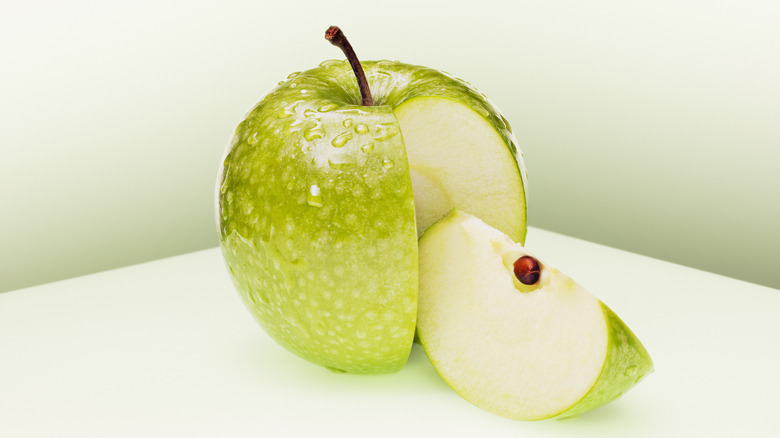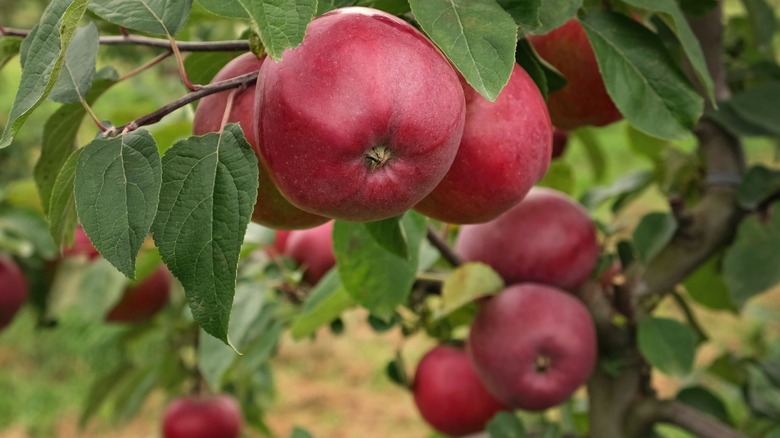Will Eating Apple Seeds Really Kill You?
Most people are told not to eat apple seeds when they're small children, with caregivers often coming up with fantastical, folky reasons why it might not be a great idea. The most common reason? That the seeds will sprout and grow a tree in your belly.
Silly, sure, but as any trivia lover would know, there is a real reason not to eat apple seeds — they are purported to contain a deadly substance, cyanide. Often referred to in movies, cyanide is a famous poison that in pill form will kill a person in a matter of seconds. Famously, Adolf Hitler died by suicide in his Berlin bunker by taking cyanide pills. However, though apples do contain the potential to release cyanide into the human body, you would have to consume a heck of a lot of apples — in a particular fashion — to cause you harm. It's almost impossible.
How many apples it would take to kill you
But the famous fact that apples contain cyanide isn't technically true. The chemical that is actually found in apple seeds is called amygdalin, which only changes into the poison hydrogen cyanide when it breaks down, i.e. through digestion.
So how many apple seeds is a fatal dose? The good news is that accidentally eating a handful of apple seeds here or there isn't likely to cause you much harm at all. The threshold for cyanide poisoning varies from person to person depending on weight — unsurprisingly, the greater the body weight, the greater dose required to cause any bodily harm. However, it has been calculated that the average adult would have to ingest in the region of 150 apple seeds — the content of around 18 apples — to suffer cyanide poisoning. Could you really ingest that in one sitting? Probably not.
But there is another factor that plays into the unlikelihood of apple seeds causing you physical harm if consumed to excess: their hard shells. Like many other seeds, those of apples are pretty much undigestable, so they would likely pass through the digestive system rather than release their chemicals into the bloodstream.
Apples aren't the only foods to contain unexpected chemicals
So apples have somehow attracted a mythic status as being an everyday fruit with a deadly secret at its center, though the chances of them bringing about anyone's demise are pretty much zero to none. And the truth is, they're not the only fruit to contain cyanide-creating amygdalin — nor are they the most potentially toxic of those that do.
Red cherries, apricots, and greengage all contain higher quantities of amygdalin per gram in their stones and seeds than apples, but for some reason haven't stuck in the popular consciousness as fruits with the killer potential of the latter. But what about other fruits and vegetables? Well, tomatoes, potatoes, and eggplants all contain traces of nicotine, the addictive chemical in tobacco. And you might be horrified to learn that bananas are actually mildly radioactive on account of their potassium content, although they too are effectively harmless.


